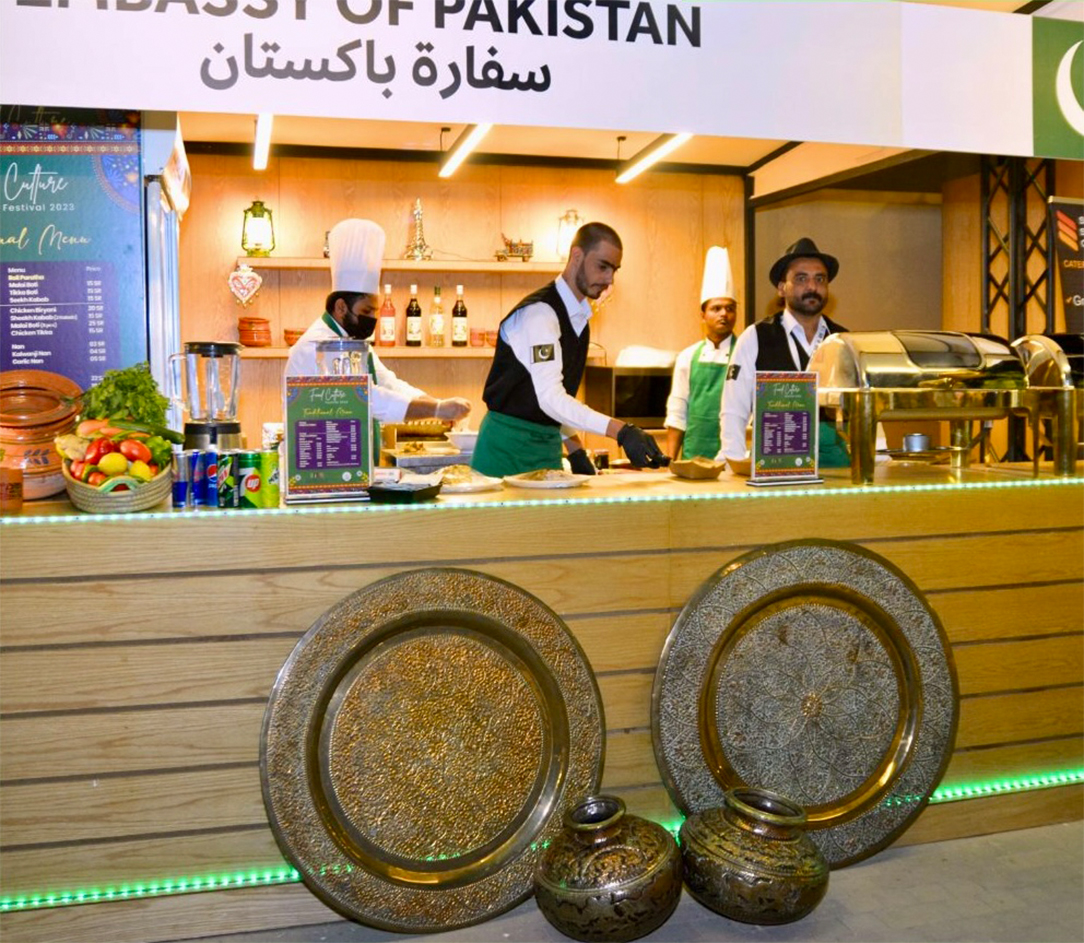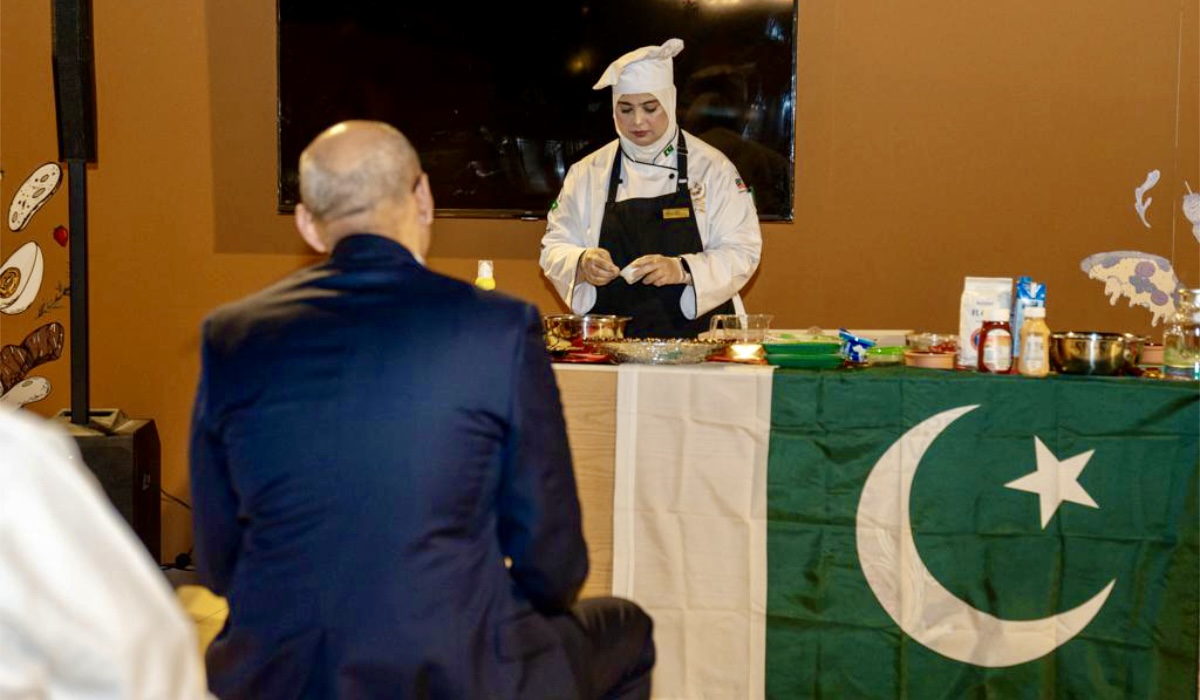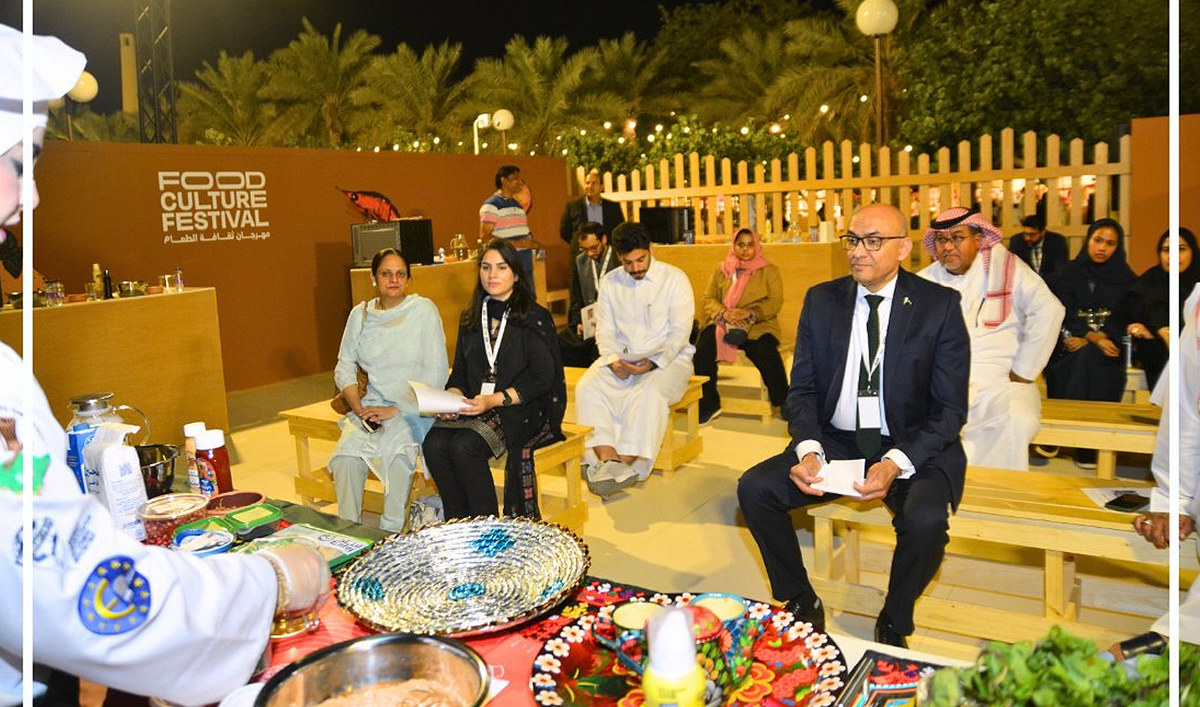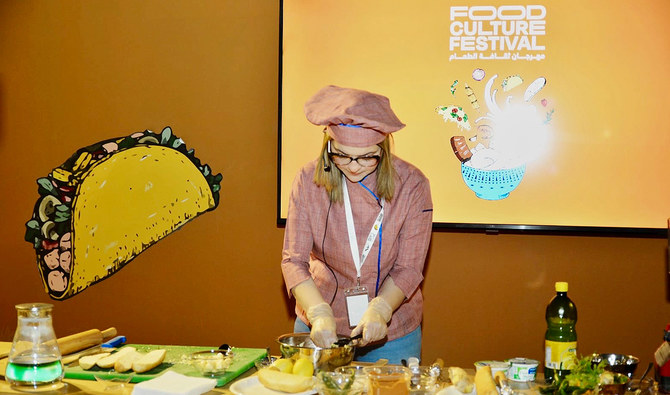ISLAMABAD: Pakistan’s top diplomat to Saudi Arabia applauded the kingdom for organizing a major food festival on Wednesday, saying it gave an opportunity to companies based in his country to introduce different varieties of the national cuisine to people in Riyadh and elicit a positive response.
Arranged by Saudi Arabia’s Culinary Arts Commission, the delectable five-day Food Culture Festival took place in Riyadh, the kingdom’s capital, from November 8 to 12, celebrating food and culture from 35 countries and offering an educational experience to visitors.
The festival’s focal points included a vibrant exhibitors’ section featuring 30 booths of restaurants from across the world, along with 10 stores peddling international food products. The event not only tantalized the taste buds of people but also offered an array of workshops dedicated to baking, live cooking, handicrafts, and the arts. With 25 diverse sessions stretched over five consecutive days, participants delved into the nuances of global dishes, beverages, cake decoration, and the art of meal presentation.
“I believe that food is a powerful means of uniting people, and considering the shared cultural aspects between Pakistan and Saudi Arabia, introducing our cuisine to the Saudi public and beyond had been an incredible experience,” Ambassador Ahmad Farooq told Arab News.

Chefs from Pakistan participate in Food Culture Festival in Riyadh, Saudi Arabia, held from November 8 to 12, 2023. (Pakistan mission in Saudi Arabia)
He said the initiative taken by the Culinary Arts Commission and the Ministry of Culture of Saudi Arabia to host this food festival was truly commendable.
“The Pakistani stall exhibited a wide array of the country’s traditional and street foods and received an overwhelming response from the visitors,” the envoy said, adding Pakistani food companies that exhibited spices and organic products also received great admiration from the visitors for their products, which were sold in significant numbers.
“I congratulate the Culinary Commission for the successful organization of this event and we look forward to participating in such events of the Culinary Commission and Ministry of Culture in the future as well,” Farooq added.
Pakistani chef Hina Shoaib who participated in the festival said such initiatives were not only instrumental in promoting cultural exchanges but also empowered individuals who could share their heritage and promote their country’s cuisine on an international stage.
“It is wonderful to see how the Saudi government and the Pakistani embassy work hand in hand to create opportunities for individuals like me, enabling them to share their talents and represent their country with pride,” she told Arab News.

Pakistani chef, Hina Shoaib, conducts a cooking workshop at Food Culture Festival in Riyadh, Saudi Arabia on November 11, 2023. (Hina Shoaib)
Shoaib said she had the opportunity to showcase the rich and flavorful Pakistani cuisine to the festival attendees.
“I conducted a workshop where I shared the secrets behind the delicious dishes and introduced the attendees to the vibrant spices and unique flavors of Pakistan by preparing traditional Pakistani dishes like Tandoori Chicken and Rooghni Naan with Mint and Tamarind sauce along with traditional yogurt,” she said, adding that the aroma filled the air, attracting curious food enthusiasts as her workshop became a hub of excitement and learning.
Another renowned Pakistani chef, Naureen Ansari, expressed her astonishment at the fantastic response from the Saudi public and their eagerness to explore global recipes.
“I used to do workshops in many countries like the United Arab Emirates, Thailand, Italy and Turkiye, but my experience in Saudi Arabia was the best and I really enjoyed it here as the response was remarkable,” she told Arab News.
Saudi visitors displayed a keen interest in learning Pakistani recipes during the cooking workshop, she added, as they displayed their eagerness to acquire new culinary skills.
“I prepared Balochi chicken tikka, and they relished it while attentively listening and practicing with enthusiasm,” Ansari continued while pointing out her first experience in Riyadh was the most memorable and remarkable one.

Pakistan’s Ambassador to Saudi Arabia, Ahmad Farooq (right) attends a cooking workshop at the Food Culture Festival in Riyadh, Saudi Arabia on November 11, 2023. (Photo courtesy: Pakistan mission in Saudi Arabia)















